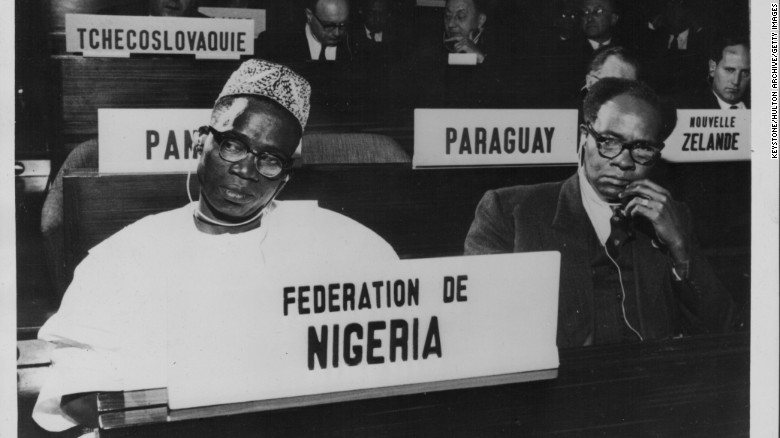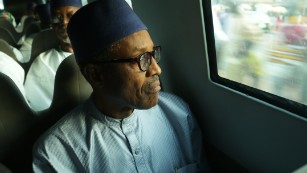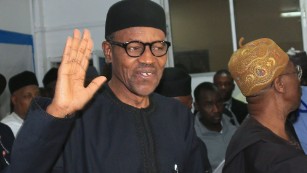Updated 1513 GMT (2213 HKT) May 29, 2015

(CNN)Disclosure
is important: I have been part of a team that worked for the new
Nigerian President Muhammadu Buhari -- from building the cache of photos
that defined his image to getting fliers across the country in all of
our languages.
I have gone from
grudgingly voting for him in 2011 (I made up my mind an hour before
voting) to enthusiastically putting relationships and business on the
line for what seemed like a quixotic quest.

Who is Nigerian President-elect Muhammadu Buhari? 01:33
But long after Muhammadu Buhari is President of Nigeria's Federal Republic, I will still be a citizen. And as a citizen, I know, that by this evening, the honeymoon will be over.
He knows this more than anyone else, and he certainly doesn't need advice to do what he does best -- work hard, and fast.
Still, these would be my suggestions for his top five priorities.
Set an example:
The
cult of personality that led President Buhari to victory was built on a
simple premise -- Nigeria, for once, needs a man shorn of greed; who
owns less in terms of material, and covets even less. There are those
who insist that the fate of a nation cannot lie solely on Buhari's
personality, and perhaps they are right. But the 'lau lau' (Nigerian
slang for wasteful) lifestyle of the president who is leaving office led
to unprecedented waste, and turned corruption into art.
Now,
because of Buhari's reputation, governments and corporate Nigeria have
begun to tighten their belts. Oil marketers are suspended in terror;
people even expect the cost of land in Nigeria to drop. If he steps into
power, and changes; then nothing he says and nothing he does will
matter. It will ruin everything. And what a darn shame that will be.
Subsidy has to go
There
has long been a media and elite consensus that Nigeria's labyrinth of
petro-politics -- which swallows at least $4.2 billion yearly in the
name of subsidy -- is a scam. Unfortunately, because he lacked both the
credibility and the vision to overhaul that system, Nigerians rightly
railed against President Goodluck Jonathan when he tried to remove the
subsidy in 2012. The argument was simple -- why force us to tighten our
belts when you continue to buy new presidential jets? Thankfully,
President Buhari has the competence (as former oil minister) and the
personal credibility to make that decision now. It will be a bloody
billion-dollar fight. But he, frankly, has no choice.
#BringBackOurGirls

Nigeria's President-elect vows to stop Boko Haram 10:01
The
President-Elect has said he cannot know if the 219 Chibok girls
kidnapped by Boko Haram last year will be found, and he is right.
Still,
Boko Haram has ravaged this country in many ways, but above all it has
stolen our faith in government. The girls stand as a symbol of our
hopelessness -- that despite a world unified in horror and haste, our
government has yet failed.
To
re-inspire a nation to reconnect with its strength and its will, there
is no stronger message than for those girls to be found.
Cost of government
The
cost of running Nigeria is obscene. The federal wage bill, at $9
billion, currently outstrips the expected revenue from crude oil sales
and Nigeria's current budget deficit stands at $5 billion, despite more
than three years of crude oil prices averaging over $100 a barrel.
The
salary for 469 federal legislators stands at $750 million. It sounds
like a cliche, but it is no less true -- simply cutting the obscene
amounts we spend on 'public service' will help Nigeria with more money
for the things that truly matter -- regenerating industry, creating
jobs, unloading the power sector, social security, saving.
Entrepreneurs matter
I
am an entrepreneur, and I know that it's incredibly hard to be one in
this country. There is no access to finance, there's multiple-taxation
and a crippling patronage system that relies on endorsements and
kickbacks.
We lack systems that enable
us to truly unlock wealth and sustain growth for entrepreneurs. Nigeria
is lucky to have a proven entrepreneurial energy proven in new-industry
addition (over $552 billion) to our GDP, and a massive influx of
foreign direct investment.
It is time
for our government to actually connect with the aspiration of an eager
youth population that's fired up and ready to go.
As we say in Nigeria, time is going.




